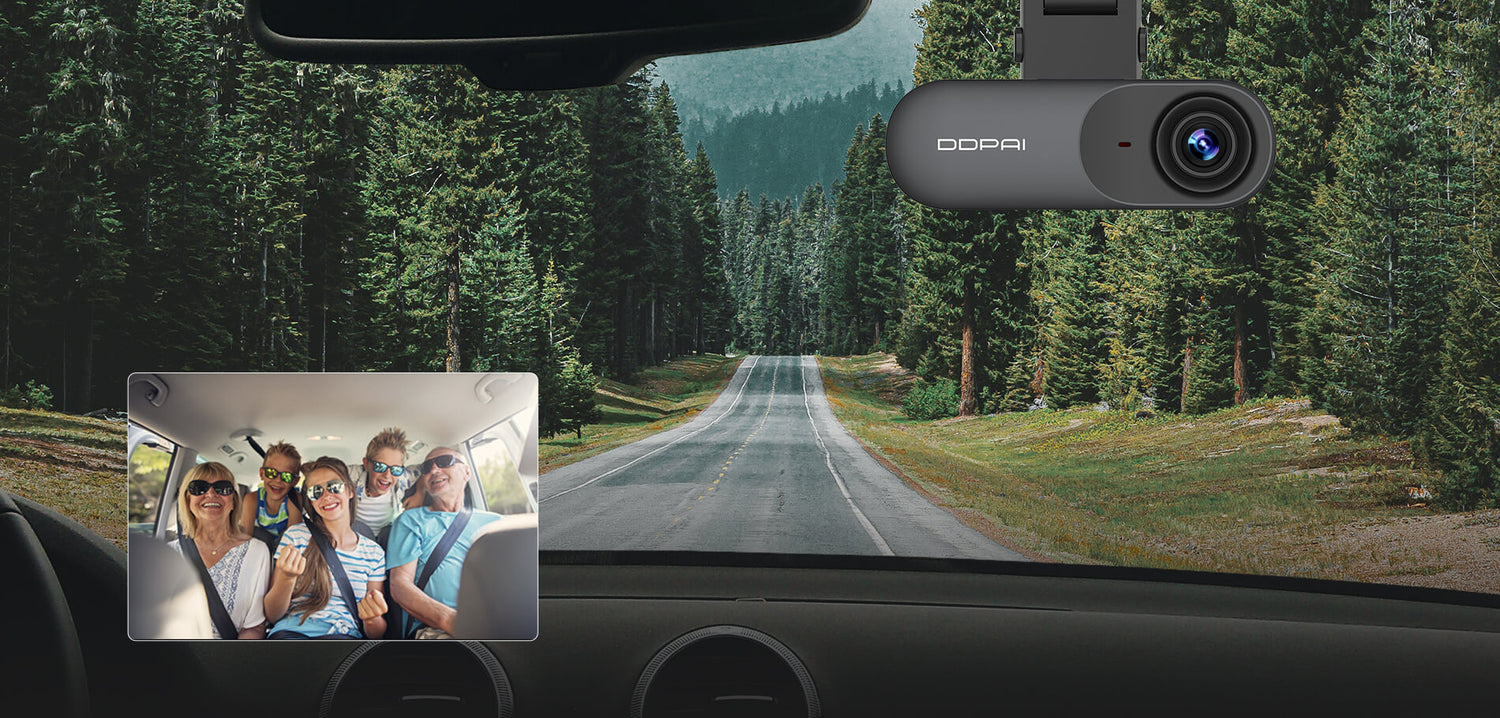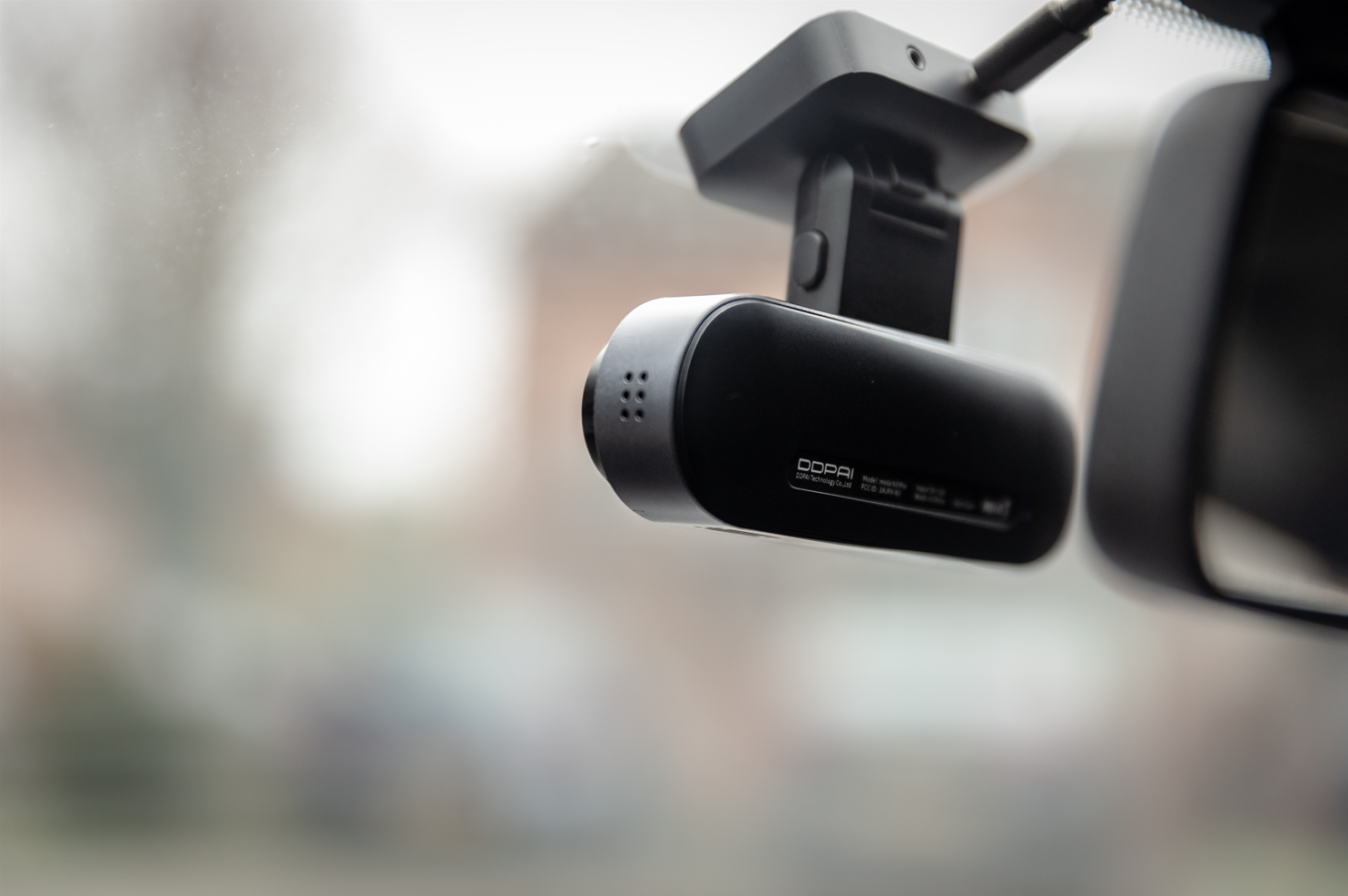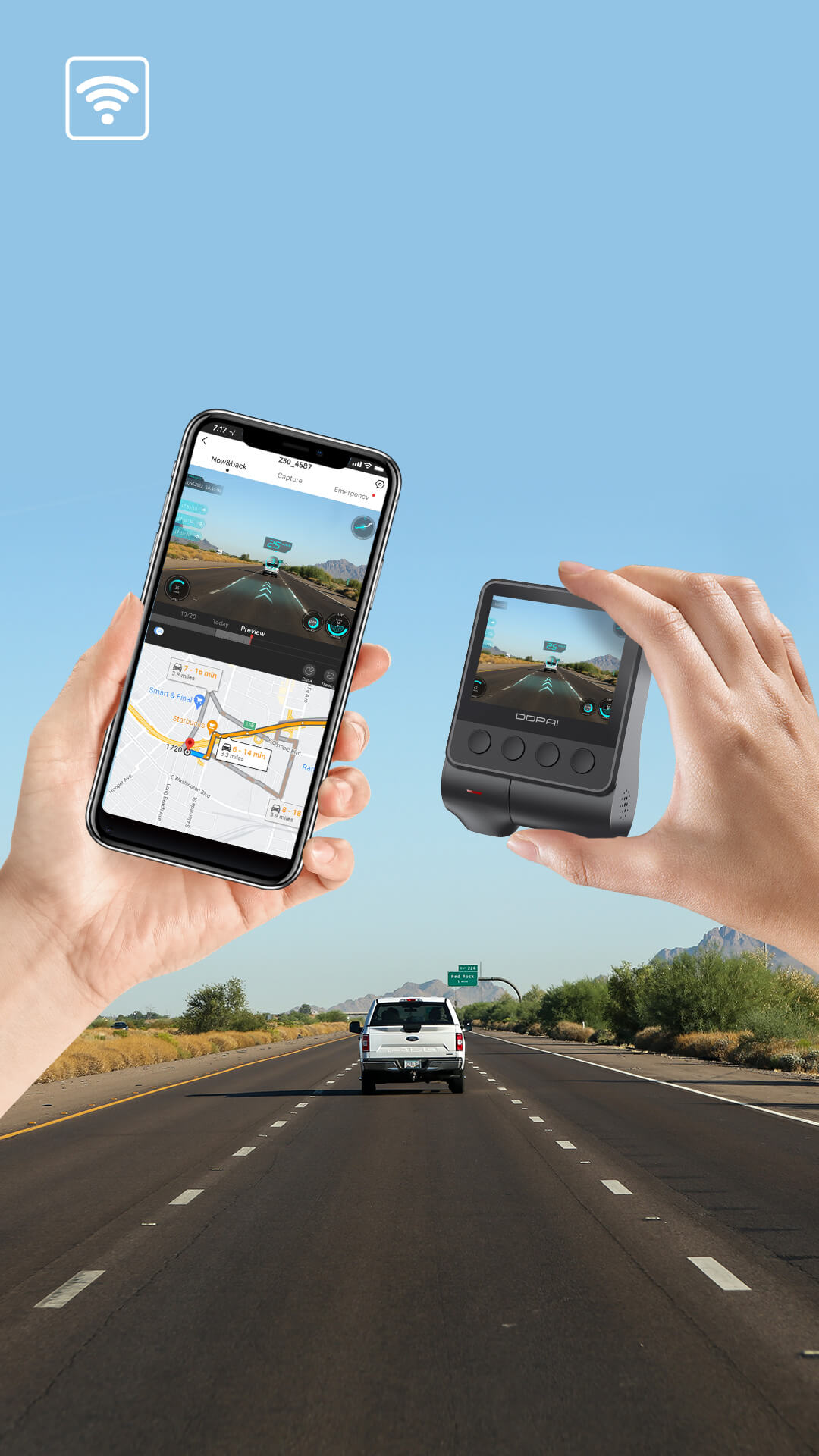A car camera recorder, also known as a dash cam, is becoming a popular addition to many vehicles. It records video footage of the road ahead and can be used as evidence in case of accidents or incidents. One of the key considerations when choosing a dash cam is the storage capacity. In this article, we will explore how much storage capacity you need for a car camera recorder.
Firstly, let's discuss what a dual dash cam is. A dual dash cam is equipped with two cameras, one facing the front and the other facing the rear. This type of dash cam allows you to capture footage from both inside and outside of the car, which is particularly useful for ride-sharing drivers or families with children. Dual camera dash cams offer an added layer of protection and can provide a comprehensive view of what happened in case of an incident.
Now, let's dive into storage capacity. The amount of storage capacity you need for a dash cam depends on various factors such as the resolution of the footage, the number of cameras, and the frequency of recording. The resolution of the footage is a critical factor in determining the storage capacity needed. The higher the resolution, the more storage space it will require. For example, a dash cam recording in 1080p resolution will require less storage space than one recording in 4K resolution.
Another important consideration is the number of cameras on the dash cam. A dual dash cam will require more storage space than a single camera dash cam because it is capturing footage from two cameras simultaneously. Therefore, it's important to choose a dash cam with the appropriate storage capacity based on the number of cameras.
The frequency of recording is also an essential factor to consider when it comes to storage capacity. Some dash cams have a continuous loop recording feature, which overwrites the oldest footage when the storage is full. This feature is useful in ensuring that the dash cam always has space to record new footage. However, if you want to keep specific footage, you'll need to save it to a separate storage device to prevent it from being overwritten.
When it comes to storage capacity, most dash cams use microSD cards. The storage capacity of these cards ranges from 32GB to 512GB. The amount of storage you need depends on how frequently you use the dash cam and how often you want to save footage. As a rule of thumb, a 32GB microSD card can store approximately 4-6 hours of footage in 1080p resolution, while a 512GB card can store up to 60 hours of footage.
In conclusion, choosing the right storage capacity for your dash cam depends on various factors such as the resolution of the footage, the number of cameras, and the frequency of recording. A dual camera dash cam will require more storage space than a single camera dash cam. It's important to choose a dash cam with the appropriate storage capacity based on your needs. As a general rule, it's recommended to choose a microSD card with a capacity of at least 64GB, which will provide enough storage space to record footage for several hours. Ultimately, investing in a top dash cam with the appropriate storage capacity can provide you with peace of mind while driving and ensure you have clear evidence in case of an incident.
Firstly, let's discuss what a dual dash cam is. A dual dash cam is equipped with two cameras, one facing the front and the other facing the rear. This type of dash cam allows you to capture footage from both inside and outside of the car, which is particularly useful for ride-sharing drivers or families with children. Dual camera dash cams offer an added layer of protection and can provide a comprehensive view of what happened in case of an incident.
Now, let's dive into storage capacity. The amount of storage capacity you need for a dash cam depends on various factors such as the resolution of the footage, the number of cameras, and the frequency of recording. The resolution of the footage is a critical factor in determining the storage capacity needed. The higher the resolution, the more storage space it will require. For example, a dash cam recording in 1080p resolution will require less storage space than one recording in 4K resolution.
Another important consideration is the number of cameras on the dash cam. A dual dash cam will require more storage space than a single camera dash cam because it is capturing footage from two cameras simultaneously. Therefore, it's important to choose a dash cam with the appropriate storage capacity based on the number of cameras.
The frequency of recording is also an essential factor to consider when it comes to storage capacity. Some dash cams have a continuous loop recording feature, which overwrites the oldest footage when the storage is full. This feature is useful in ensuring that the dash cam always has space to record new footage. However, if you want to keep specific footage, you'll need to save it to a separate storage device to prevent it from being overwritten.
When it comes to storage capacity, most dash cams use microSD cards. The storage capacity of these cards ranges from 32GB to 512GB. The amount of storage you need depends on how frequently you use the dash cam and how often you want to save footage. As a rule of thumb, a 32GB microSD card can store approximately 4-6 hours of footage in 1080p resolution, while a 512GB card can store up to 60 hours of footage.
In conclusion, choosing the right storage capacity for your dash cam depends on various factors such as the resolution of the footage, the number of cameras, and the frequency of recording. A dual camera dash cam will require more storage space than a single camera dash cam. It's important to choose a dash cam with the appropriate storage capacity based on your needs. As a general rule, it's recommended to choose a microSD card with a capacity of at least 64GB, which will provide enough storage space to record footage for several hours. Ultimately, investing in a top dash cam with the appropriate storage capacity can provide you with peace of mind while driving and ensure you have clear evidence in case of an incident.




Leave a comment
All comments are moderated before being published.
This site is protected by hCaptcha and the hCaptcha Privacy Policy and Terms of Service apply.